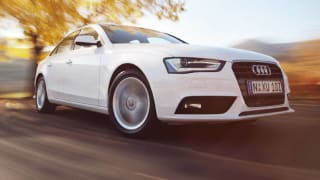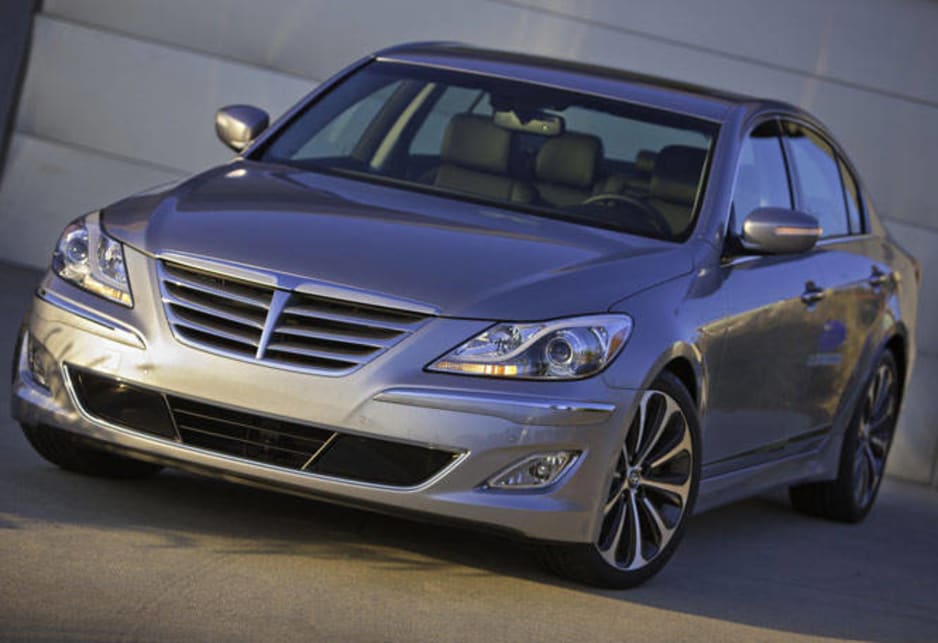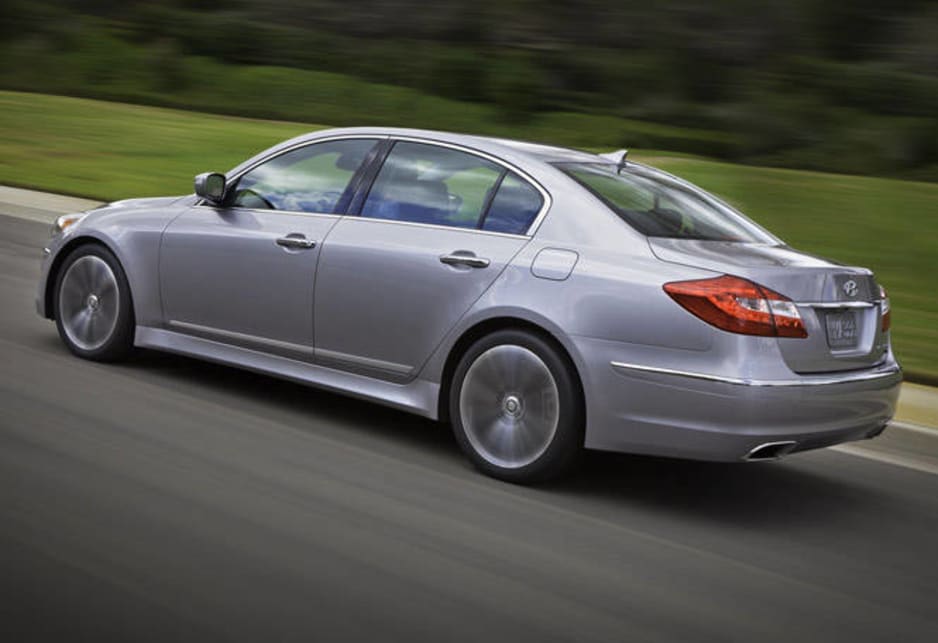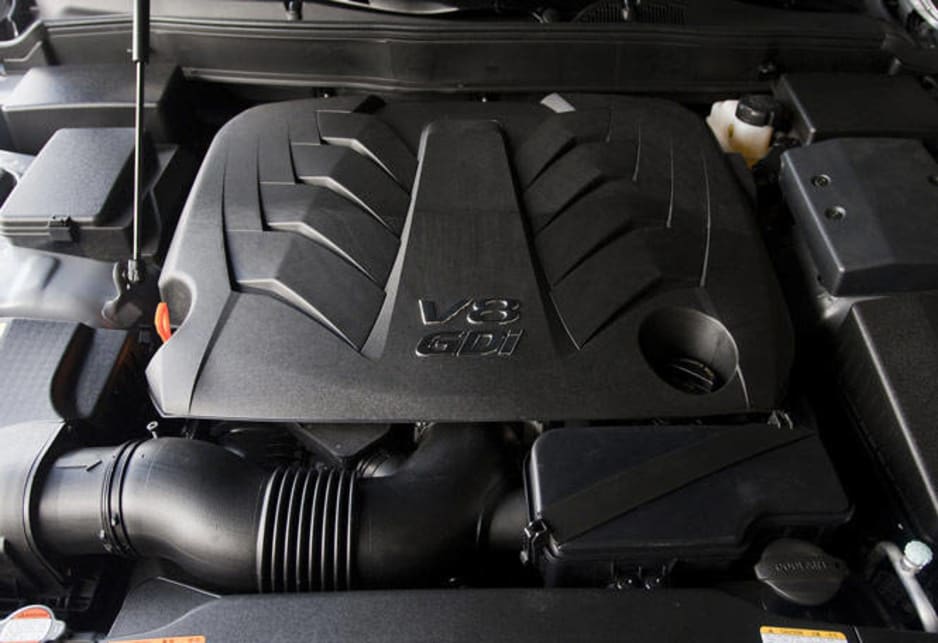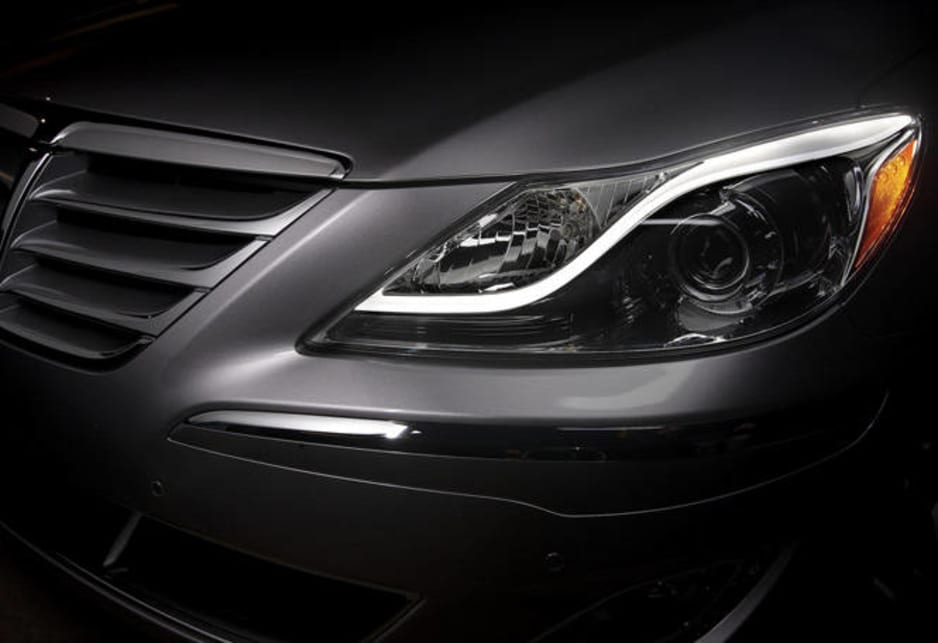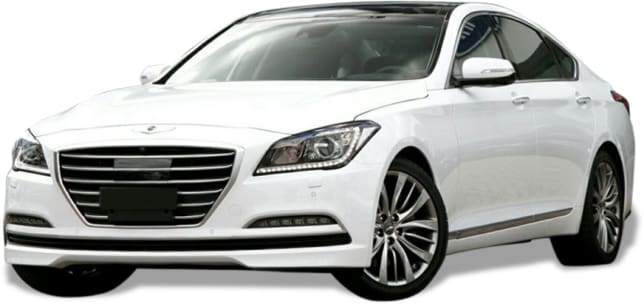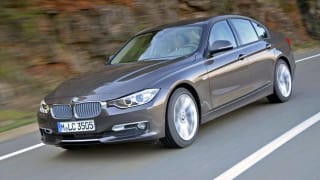The Toyota Cressida is back, but it’s wearing a Hyundai badge. Hyundai has made a lot of progress over the past decade. As a present to itself, and to show the rest of the world what it was truly capable of, it built a luxury sedan to take on the likes of Lexus in North America.
In much the same way as the original Lexus limousine aped the design of the Mercedes-Benzes of 21 years ago, the high-brow Hyundai also has hints of Mercedes-Benz. The trouble is Hyundai seems to have copied the old ones, not the new, shapelier ones. The grille on the big Genesis sedan even looks like it could have a German part number.
But beyond the conservative styling is a symbol that shows how serious Hyundai is about, well, being taken seriously. Apparently the next generation sedan will adopt a sleeker appearance, but Hyundai Australia says it has not yet confirmed it for Australia.
VALUE
In North America the Hyundai Genesis sedan starts at just $34,200 for a V6 model – that’s cheaper than a Holden Commodore. But the V8 we drove started at $46,200 – still cheaper (and bigger) than a Holden Calais.
With these prices you can see why the Australian car industry is struggling under the weight of cheaper imports. But back to the Genesis sedan. If it were to go on sale in Australia it would likely cost between $50,000 and $60,000 because it would come with the works.
This would put the Genesis up against the BMW 3 Series, Audi A4 and Mercedes-Benz C-Class – a tough sell, regardless of how much bigger and more powerful the Hyundai is.
TECHNOLOGY
This should be Hyundai’s technology flagship but it’s getting a bit long in the tooth in North America and so it doesn’t have many gadgets. It doesn’t have lane-keeping, auto braking, blind spot warning – the lines on the navigation screen don’t even swivel as they do in other cars these days.
Only the driver’s seat gets cooling as well as heating; other top notch cars give the front passenger the royal treatment as well. Alas, the Genesis sedan at least gets pretty nifty power window switches, unlike the Genesis coupe which gets rather ordinary ones. Next!
DESIGN
Five seats and a big boot. There’s plenty of room in here and the leather is not as plasticky as can be found in some Japanese limousines. The materials are of a higher quality finish than found in regular Hyundais, a good indicator that the company is capable of even better than what Australian buyers have seen so far.
Visibility all around is good and most mod-cons are covered when it comes to air-conditioned comfort – the front can be split between the driver and the passenger, and the rear seat can set another temperature again. Talk about keeping the peace. Perhaps we should get world leaders to go for a ride in this.
SAFETY
Airbags galore and a good stability control set-up (necessary on such a big, wieldy, powerful car). As mentioned before, however, there’s nothing ground breaking here because it’s now so old. The next one promises to have more fruit.
DRIVING
Let’s start with the good news. The 5.0-litre V8 engine is silky smooth, matched to a creamy eight-speed auto. With those gushing words, you get the idea. The engine and gearbox are good, which means I’m priming for the bad news about the rest of the car.
The grip and the handling are fine – but you only realise that from the passenger seat, because the steering really is quite poor. It feels as though the steering wheel is connected to the front control arms via two ropes: one to go left and another to go right. That’s an exaggeration of course, but not much of one.
If the brilliant Genesis coupe shows what Hyundai is capable of in the future, the Genesis sedan is a stark reminder of how bad it has been in the past. Remember the woeful reviews of the original Hyundai i45 sedan? That car feels a peach compared to the steering on this.
Thankfully we know Hyundai is a fast learner; if we were to get the next generation Genesis sedan, it would be better than this. It has to be.
Hyundai Genesis sedan
From: $60,000 (estimated)
Safety rating: five stars
Warranty: five years/unlimited km
Body: five-seat sedan
Dimensions (L/WB/W/H): 4986/2936/1889/1476
Weight: 1835 to 1884kg
Engine: 5.0-litre V8 (320kW/510Nm)
Transmission: eight-speed auto
Performance (0 to 100km/h): 5.3 seconds
